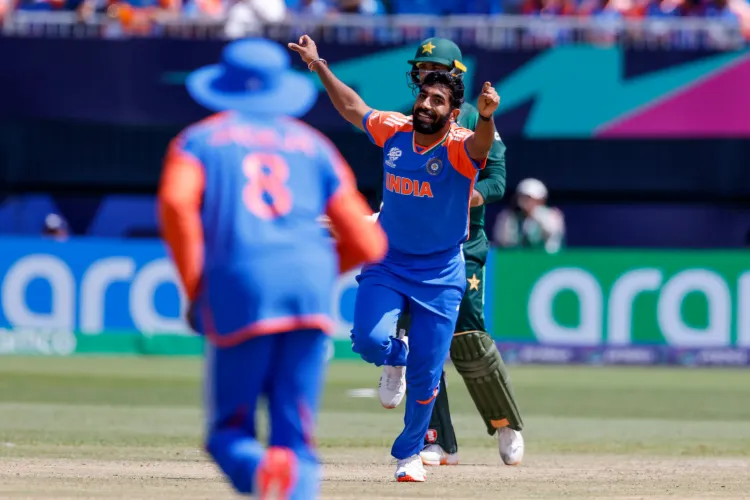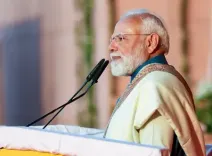Asia Cup: Can Wasim Akram's Pakistan Challenge Dominant India?

Synopsis
Key Takeaways
- Wasim Akram believes in Pakistan's potential against India.
- India has been in excellent form leading up to the Asia Cup.
- Pakistan's recent tri-series victory boosts their confidence.
- Key concerns for Pakistan include player form and bowling strategy.
- Indian team's depth and structure are commendable.
Mumbai, Sep 12 (NationPress) The iconic fast bowler Wasim Akram asserts that Pakistan is poised to challenge a formidable India when they clash in the Asia Cup in Dubai this Sunday.
This much-anticipated showdown between the two rivals, their first encounter since the military tensions in May, has sparked global excitement, leading to a complete sell-out of tickets, as reported.
India, reigning champions, have showcased their dominance by winning 18 out of 21 T20 Internationals since their World Cup victory last year. They affirmed their prowess with a decisive nine-wicket victory against the UAE in their opening match.
Pakistan, on the other hand, enters the Asia Cup with renewed confidence after clinching the tri-series against Afghanistan and UAE, according to the report.
“I believe it will be a fiercely competitive match,” Akram shared with Telecom Asia Sport (www.telecomasia.net). “While India is undoubtedly a strong team, Pakistan will carry the confidence from their recent tri-series victory and will put forth a commendable challenge.”
The legendary pacer noted that Pakistan has a solid foundation under the guidance of new captain Salman Agha and coach Mike Hesson, but cautioned against expecting immediate results.
“Pakistan is a young team with a competent captain and head coach, but they require time to evolve into a cohesive unit. As a nation, we often seek quick outcomes that may not materialize,” he stated, as quoted by www.telecomasia.net.
During his analysis, Akram pointed out concerns regarding Mohammad Haris, who has struggled since his century against Bangladesh in May.
“This young squad is progressing well, but they face challenges. Haris is not in his best form and is not batting in his preferred opener position,” said Akram.
“It’s challenging for Haris. I spoke with Robin Uthappa (former Indian opener) during commentary, and he mentioned that it’s nearly impossible for an opener to perform well in the middle order, so Haris should be positioned higher in the batting order,” he suggested.
Another concern, Akram highlighted, is the bowling strategy. “Having two part-time bowlers as the fifth option is problematic. Opponents will target them, so it's crucial to field five specialized bowlers. If they are under pressure, it affects the batting.”
Akram acknowledged the strength of India’s lineup, particularly their bowling diversity. “Similar to Pakistan, they boast four quality spinners and two seam options. Kuldeep and Varun are both impressive, making it difficult to anticipate their deliveries. Kuldeep displayed remarkable accuracy and potency recently.”
He credited India’s ongoing success to their cricketing infrastructure. “This level of achievement didn’t occur overnight. It’s the result of a long-term strategy. They have one of the finest high-performance centers, supported by figures like Rahul Dravid and Laxman. If a player is injured, they receive proper rehabilitation at the center. Their IPL is of exceptional quality, and players do not participate in other leagues.”
For Wasim Akram, India’s pace ace Jasprit Bumrah stands among the elite in contemporary cricket, though he refrained from drawing comparisons across different eras.
“Bumrah is a talented bowler, but it's unfair to compare bowlers from various generations. Each era has its unique challenges. In our time, batsmen had different approaches, often avoiding aggressive shots, which reduced pressure on bowlers.”
“Currently, batters are aggressive, attacking nearly every ball, which increases pressure on bowlers. Bumrah is performing exceptionally well and is well-managed by India. We must acknowledge the challenges bowlers face due to the T20 format,” he concluded.










